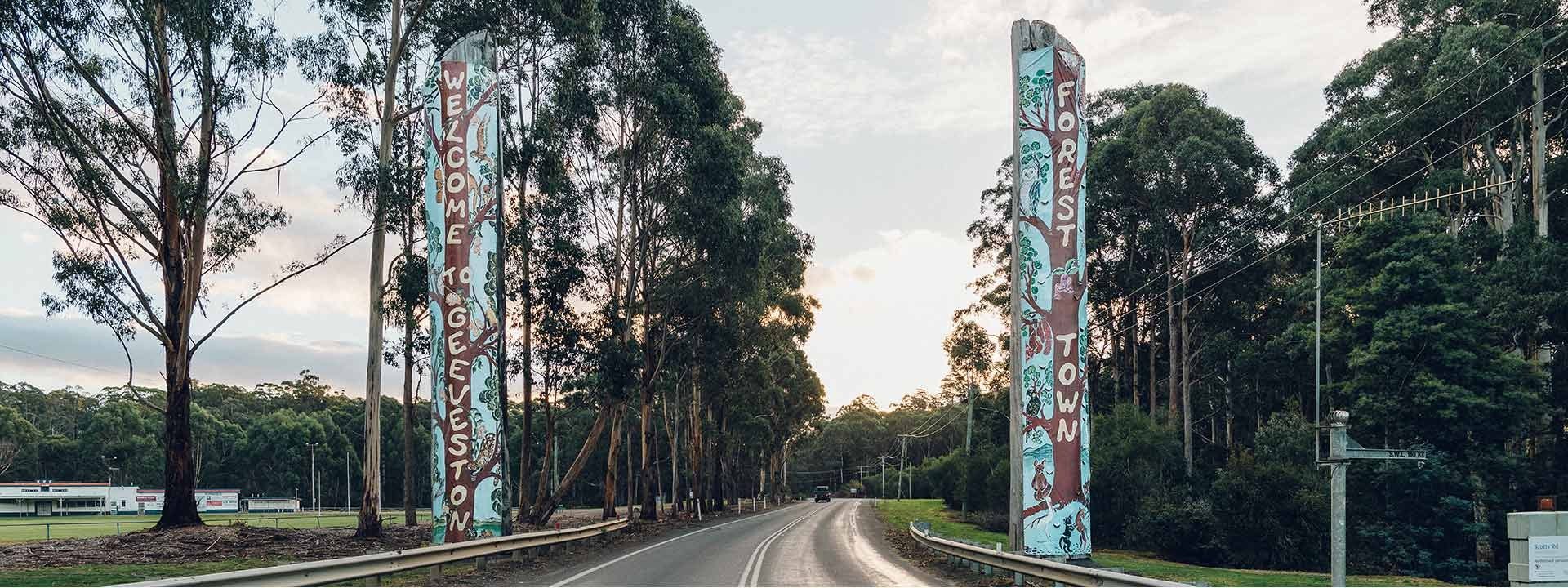By Jack Petree, Tradeworld Communications
May 17, 2021
The forests of Australia’s State of Tasmania provide some of the most unique timber found anywhere in the world. In addition to more common eucalypt species for both domestic and export use, Tasmania’s forests are home to a number of wood species found nowhere else on earth. In recent years, a Wood-Mizer LT70 Super Hydraulic portable sawmill, in combination with two Wood-Mizer wood drying kilns, have proven to be important tools in recovering maximum value from Tasmania’s state forests. In addition to optimizing value from “special species” timber, slabs, and other products, the sawmill has helped to ensure the sustainability of Tasmania’s forest resources.

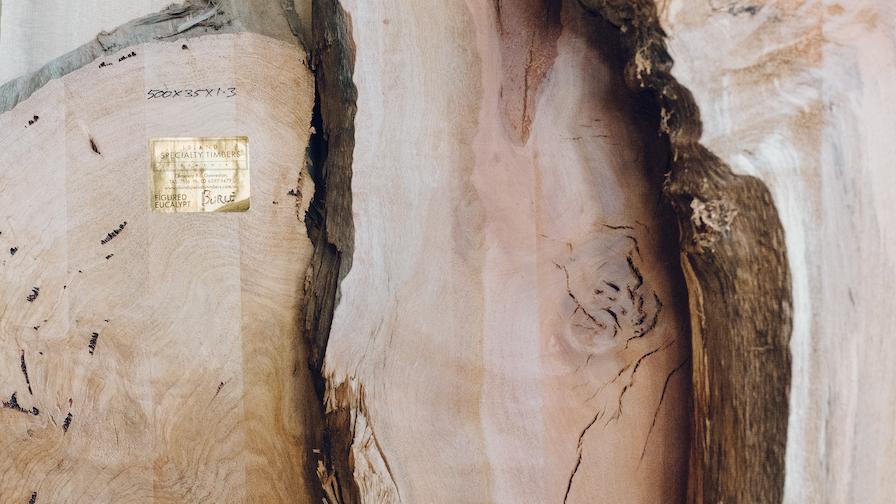
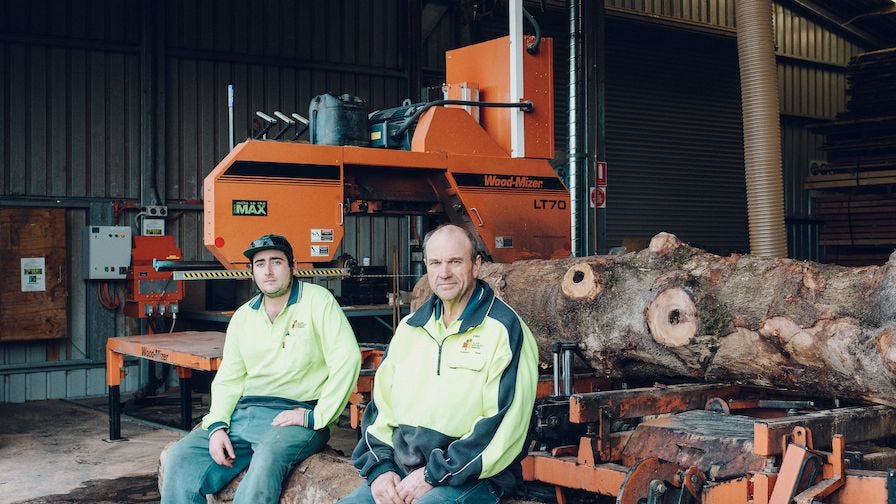
Sustainable Timber Tasmania (STT) is a Tasmanian Government Business Enterprise charged with sustainably managing approximately 800,000 hectares of state-owned forested lands. These forests are set aside for the production and sale of forest products needed to support the ongoing development of the Tasmanian forest industry. To help assure Tasmania’s people enjoy the full benefits available from the special species growing on their island, Island Specialty Timbers (IST) was established in the early 1990s as a business enterprise of STT, with the goal of sourcing and selling Tasmanian specialty timbers harvested or salvaged on the state-owned lands.
Access to a supply of wood from special species is important in supporting Tasmanian based enterprises for building products, boat repair lumbers, veneers, furniture, turned items, musical instruments, and other arts and crafts products for markets throughout Australia and abroad.
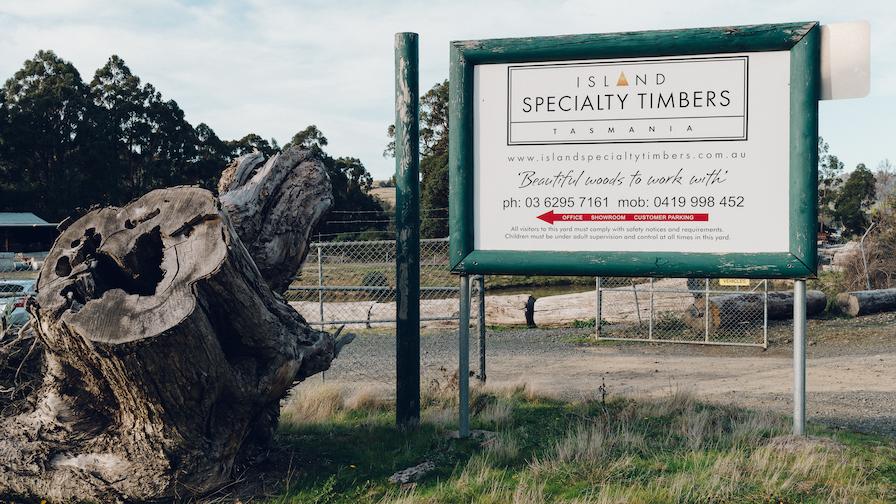
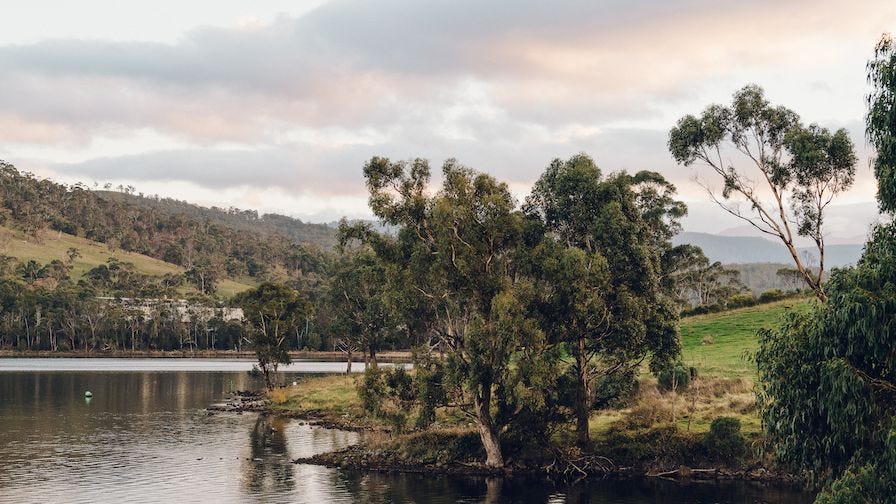
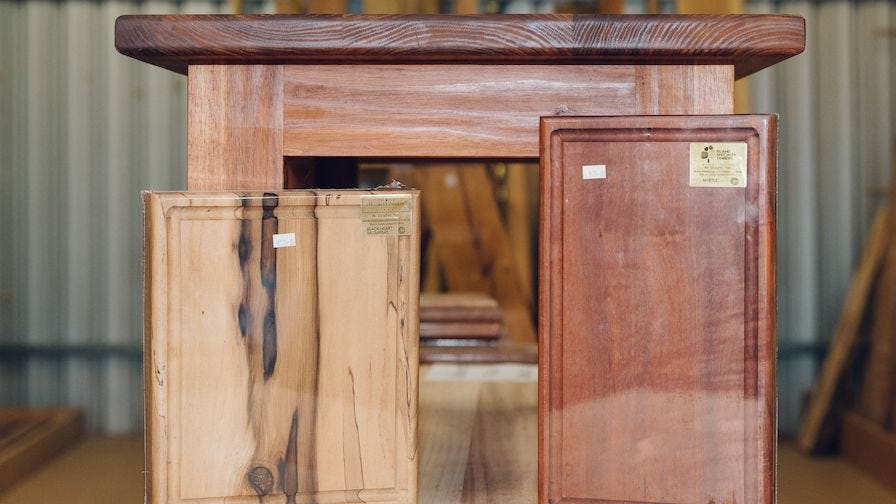
Chris Emmett manages Island Specialty Timbers’ Geeveston site in Tasmania, a town of just over 600 residents proudly proclaiming themselves to be living in “Australia’s most southerly town.” Secondary IST log yards are maintained on the west coast of the island at Strahan in the heart of the Huon Pine region and at the north island town of Smithton.
Most of the species Island Specialty Timbers deals with are highly sought after. Some, like green Huon Pine and King Billy Pine, can no longer be legally harvested, but logs and other tree parts highly valued by craftspeople can be salvaged and made available. “The species that we mainly have are Blackheart Sassafras, Spalted Sassafras, Blackwood, Wattle, Huon Pine, Myrtle, King Billy and special woods from other species like Eucalyptus burls, Myrtle burls, and the like,” said Chris. According to Chris, occasionally Musk, Ti (Tea Tree), or other understory species are also recovered as byproducts of overstory harvests.
Chris, who joined IST in 1992, comments the company started out as a very small special timbers log yard with limited equipment operating out of a small tin shed with an office that didn’t even have power to it.
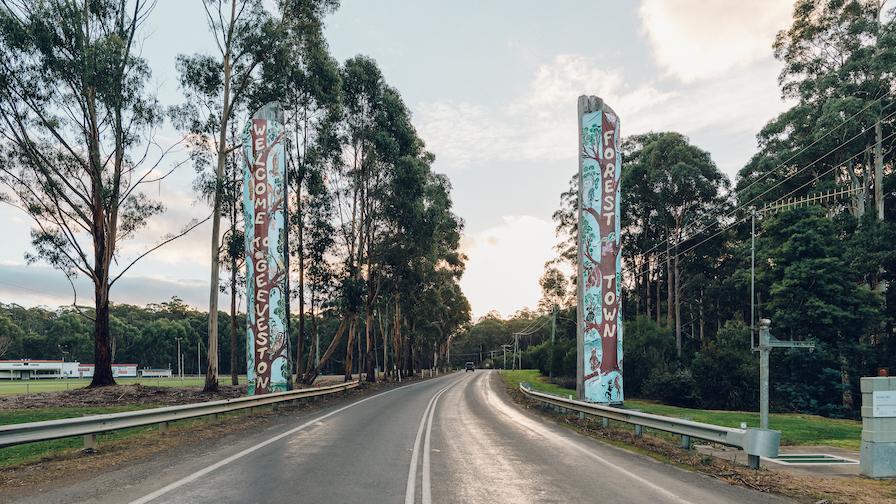
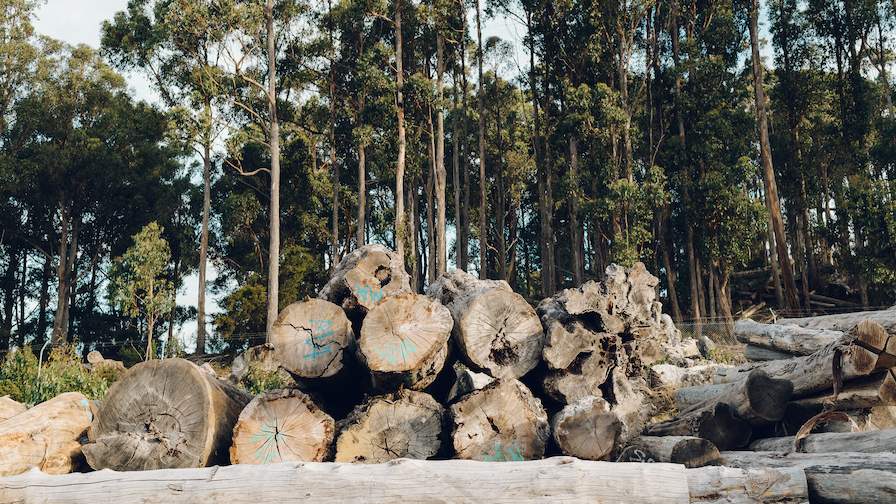
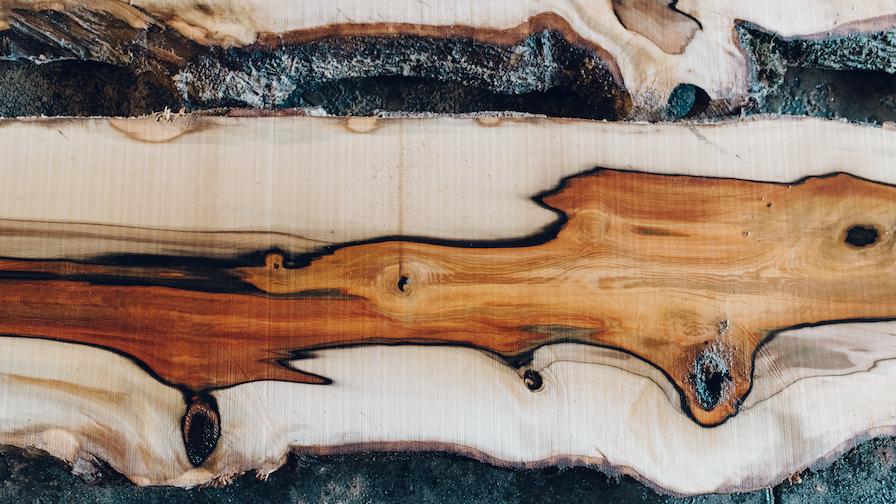
Despite the high value of the material being recovered and made available for sale to the public at that time, the supply of logs the company had on hand grew faster than sales. “We couldn’t sell enough logs because there just weren’t enough people to buy them,” said Chris. “So we started downstream processing milling logs and other tree parts into timbers, lumber, and other products.”
The move to downstream processing was necessary because many of IST’s potential customers had no viable way to mill a whole log down into usable timber, nor did they have the desire or finances to pay for a whole log when a small amount of material was needed.
Adding processing capacity to IST Geeveston made Tasmania’s specialty timbers available to a much broader range of customers. Now, a craftsperson, unable to purchase a whole log and then effectively reduce it into useable material, could visit the yard and select an appropriate amount of timber, slab, or burl without the need to pay for an entire log. Milling logs also adds significant value to the original log, a step enhancing IST’s ability to meet its economic goals.
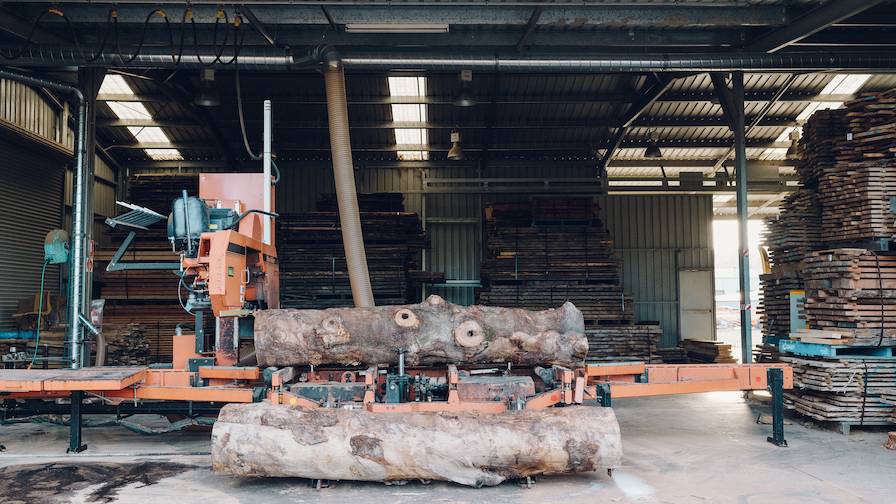
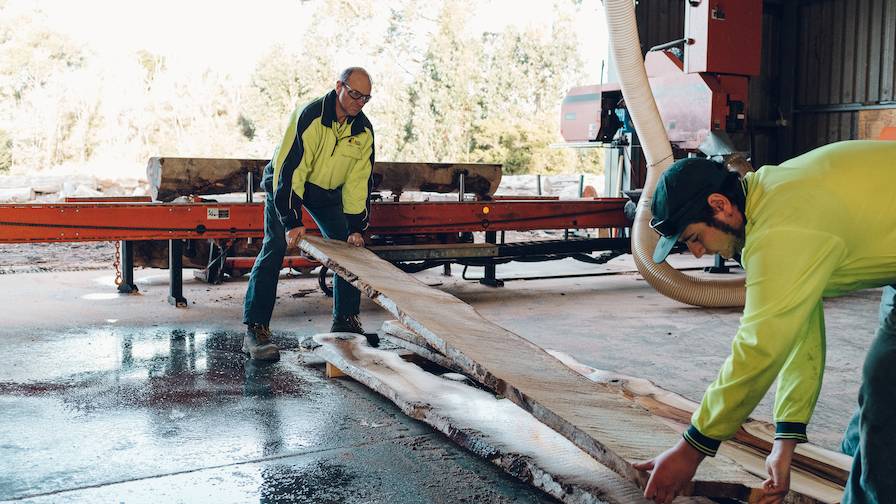
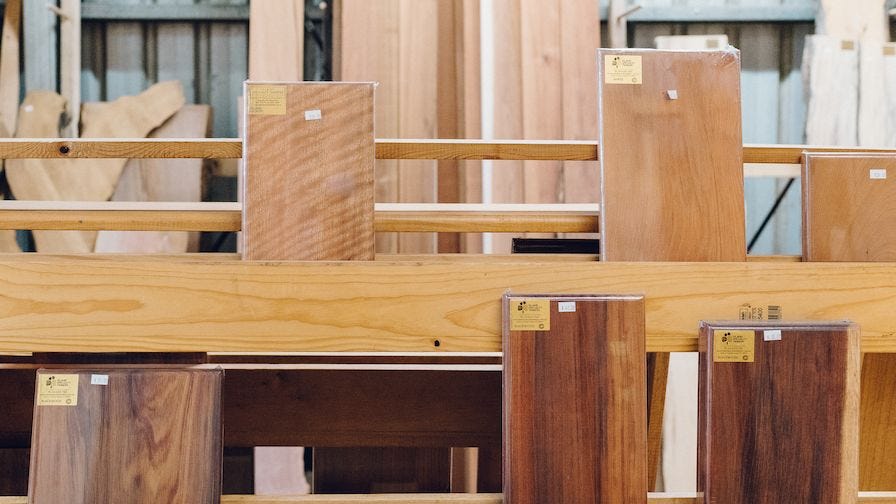
Many approaches to sawmilling followed the decision to move into the processing of some timber, slabs, and other products. Issues with sawmills tried out initially included poor quality lumber such as wavy cuts, an inability to take advantage of the economic and environmental benefits thin kerf milling provides, and the need for more labor than is required operating a thin kerf sawmill.
From an environmental standpoint, processing logs utilizing thin kerf sawmilling technology can mean less sawdust on the ground and more lumber to sell. Studies have shown logs processed utilizing thin kerf sawmills can result in lumber yields as much as 30% higher than conventional milling provides. In a log potentially costing thousands of dollars, that uptick in production can add hundreds of dollars in value in each log. Tasmanian businesses benefit, the island’s environment benefits, and the people of Tasmania benefit.
The ultimate solution was the purchase of a Wood-Mizer LT70 Super Hydraulic portable sawmill, a thin kerf sawmill capable of milling a 36” (910mm) log while reliably sawing to precise tolerances. “Back in 2010 we purchased our LT70 with the wide head and we’ve never looked back,” said Chris. “We wanted something permanent, and we’d just invested in a mill shed so we equipped the LT70 with a 30-horsepower electric motor. That was some of the best money we ever spent.”
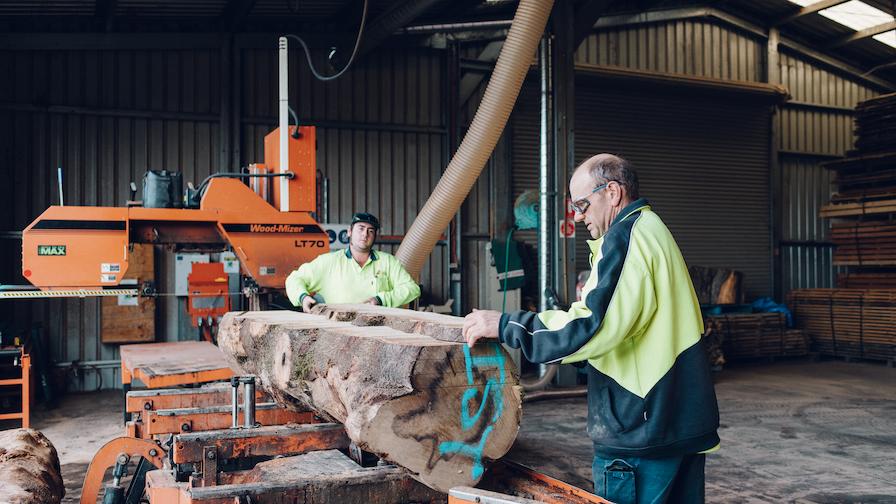
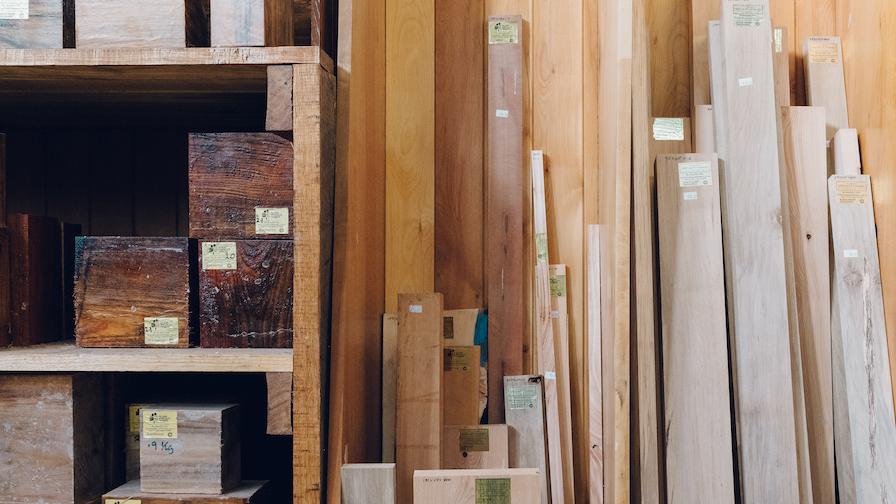
About that time, Chris adds, “We also purchased other machinery including a thicknesser (planer), and a jointer to our bandsaw drum sander to help us downstream more of our products.” Island Specialty Timbers has also added two wood drying kilns for drying the timber milled on the Wood-Mizer that operate 24/7 according to Chris.
As with the LT70 portable sawmill, the kilns not only add considerable value to the products sawn on the mill but provide an environmental enhancement. Traditional wood drying methods force the moisture out of lumber quickly and/or unevenly, leaving behind lumber that often needs to be excessively trimmed because of damage to the flat surfaces and ends of the sticks of lumber. Dry kilns are slower but provide for more yield as well as a better-quality product which is an an invaluable benefit to the fine craftsmen and women ultimately utilizing special species timber.
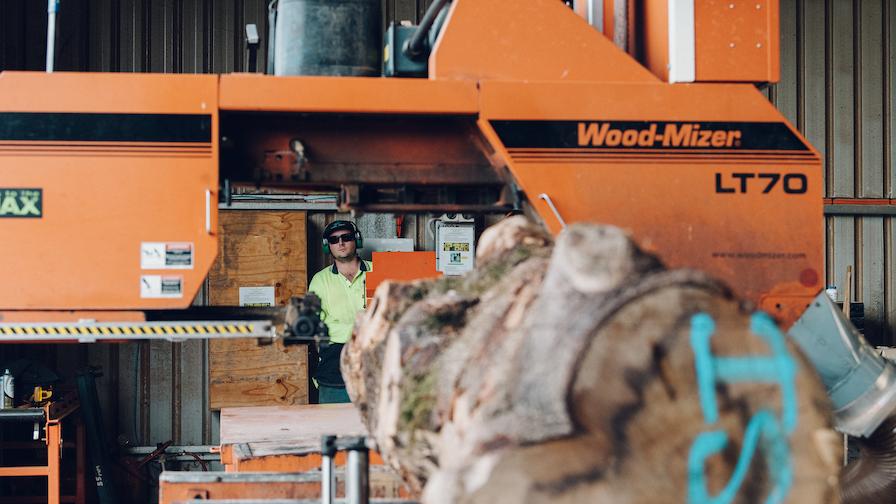
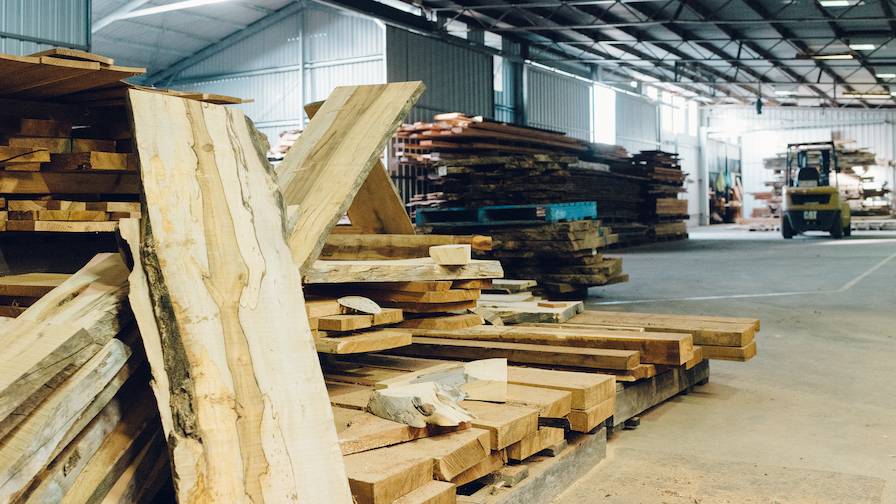
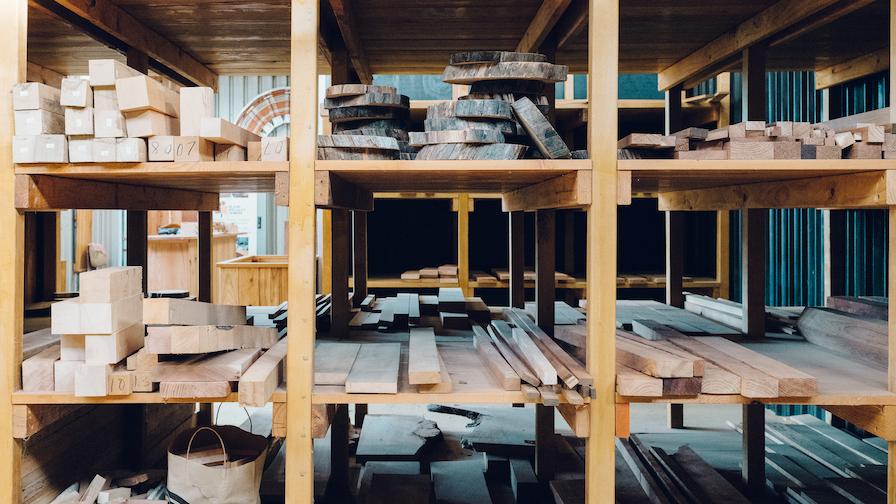
According to Chris, Island Specialty Timber’s Wood-Mizer sawmill has been “…a brilliant machine,” with equally brilliant service provided Wood-Mizer in Australia. The acquisition of the sawmill and kilns has allowed increased access to Tasmania’s special timbers not previously available to the small craft businesses or hobbyists on the island. “People like to know their wood comes from a sustainable, well-managed forest. Our chain of custody certified processing facilities allow us to assure people are getting that when they deal with Island Specialty Timbers,” said Chris.



